The exercise was to teach someone a skill that they might not have. The scenario is that you are hiking somewhere, and are looking to pitch your tent.
Map skills: you should have planned the pitch as part of your route-planning. Somewhere sheltered, within reach of water (unless you are willing to carry it in), not on marshy ground, you might even have to consider midges and other insects (e.g. low lying, stagnant water, no breeze).
A wild camp must comply with the law of the land. If you light fires where you shouldn't, cause damage, etc, then you are no longer wild camping, and open yourself up to legal action. Scotland has an excellent Access Code, and hikers worldwide are envious of us here.
This pitch at Lochan Odhar to the north of the Braeriach, was quite rocky. I dropped my rucksack and wandered around with my walking poles to find a suitable site.
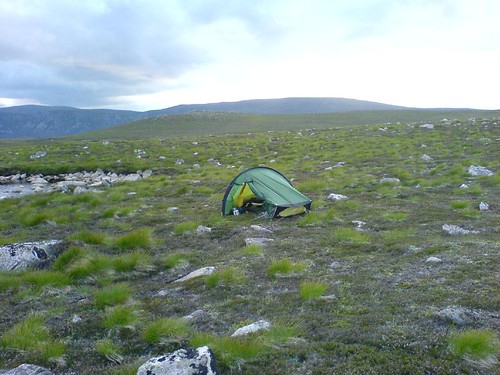
I also want a good view from the door, which is normally over my left shoulder as I'm lying down, with my feet into the wind.
Walking over the ground, I can use the poles to prod the ground, also to measure out approximate areas (2 poles long, 1 pole wide) if there's any doubt. Finally, I can lock the poles together with loops and leave them in the ground to mark where I've decided to camp while I go back and get my rucksack. In this area, I found only 2 suitable pitches, and chose the one nearest my rucksack.
All plans have failings, and finding a hidden projection beneath the tent can mean you have to move. I've done that, and it's better than chancing a torn groundsheet. Other items to watch for are sharp heather branches and cones from conifers.
Key points: using available shelter.

Consider your supply of water.
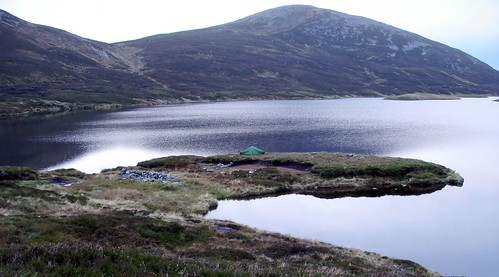
Leave no trace.
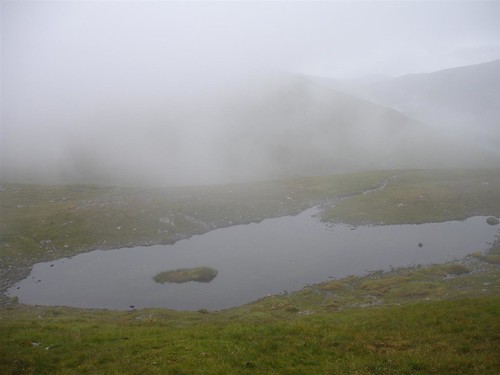
Relax and enjoy the view. Makes it all worth it.
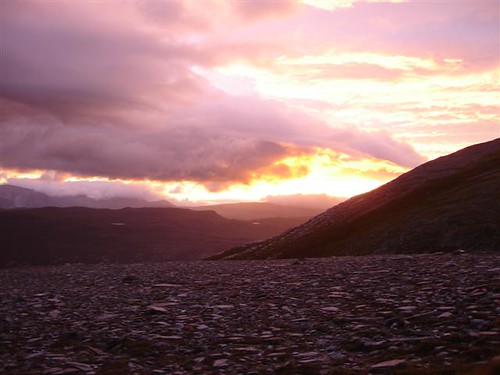
Essentials: knowledge of outdoors navigation, knowledge of weather forecast, knowledge of own ability; suitable kit, gear and mental ability to survive off the beaten track. Recommended reading: "The Backpacker's Handbook" by Chris Townsend.




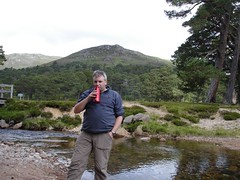
No comments:
Post a Comment